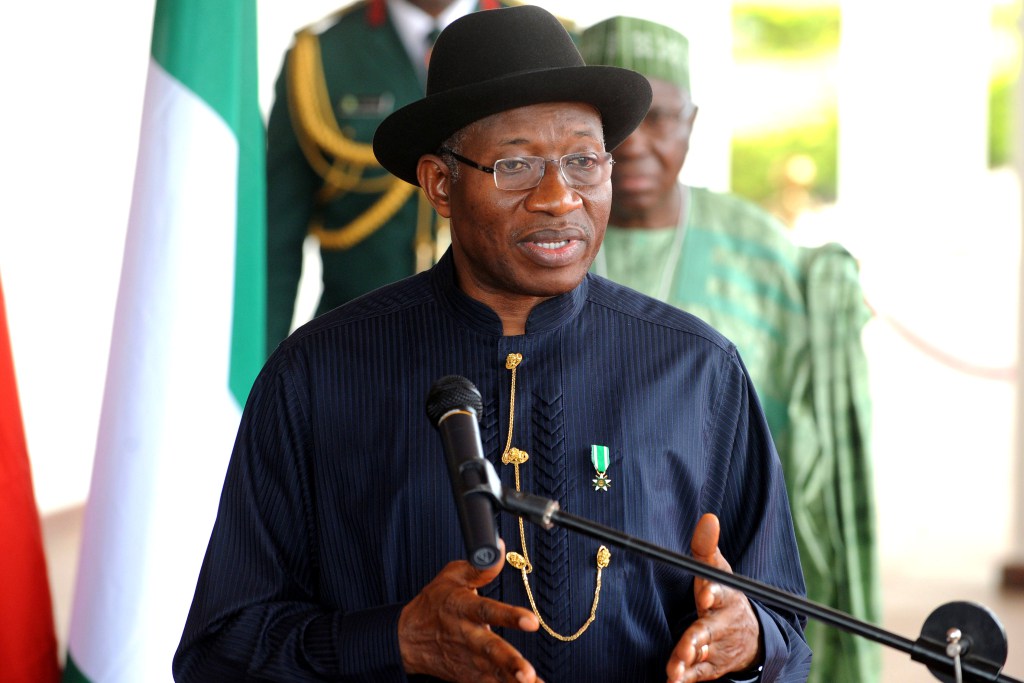As the details of the new book by Former Nigerian President, Goodluck Jonathan, continue to unfurl, more revelations are coming to the fore from the boo, which was launched on Tuesday in Abuja i a well-attended launch.
The former is of the opinion that the Independent National Electoral Commission (INEC) under Prof Attahiru Jega worked against his re-election.
Jonathan, who was the candidate of the Peoples Democratic Party (PDP) lost to President Muhammadu Buhari of the All Progressives Congress (APC) on March 31st 2015, marking the first time an opposition party wins an election in Nigeria.
In his book, ‘My Transition Hours’ launched in Abuja on Tuesday, Jonathan wrote:
“For some inexplicable reason, the INEC had been able to achieve near 100% distribution of Permanent Voter Cards in the North, including the North East, which was under siege with Boko Haram insurgency but failed to record a similar level of distribution in the South which was relatively more peaceful,”.
Social media was filled with all manner of stories, pictures and videos. I had settled in my mind that I was not going to be the sitting president pointing out these infractions and accusing the opposition and the very INEC I helped to strengthen.
The world saw my ordeal at the polling unit in my community in Bayelsa State, where the card reader refused my PVC even after we tried repeatedly during accreditation.
And it was the same with my wife and my mother. It was a moment that exposed the shortcomings of INEC”.
Mr Jonathan said even though he conceded defeat because of personal principles he had long held, he was even more conscious of past predictions of the United States intelligence that Nigeria would break apart.
“I knew what was coming the day before I called General Muhammadu Buhari. I had reports on the polls around the country. It was clear the results were not going to favour me. There were series of problems with card readers, resulting from widespread technical hitches leading to the non-uniform application throughout the country.
However, I was heading towards peace. Stopping the election on voting day would have been like detonating an atomic bomb,” he said.
Dr. Jonathan said shortly after he finished voting on March 28, he departed Bayelsa for Abuja to monitor the rest of the exercise from March 29 until he made concession call on March 31.
“The country was tensed. I had to do something. I could no longer wait for the collation of final results. The pressure on the country was palpable. In Lagos, people were ready to burst loose on the streets and in the North, the stage was set for envisaged violence. One of my party’s agents at the INEC National Collation Centre in Abuja, Elder Godsday Orubebe got into a heated argument with the INEC Chairman, Prof. Attahiru Jega.
That further raised the tension in the country. Everyone was expecting the worse. I knew it was time to douse the tension and I did”














